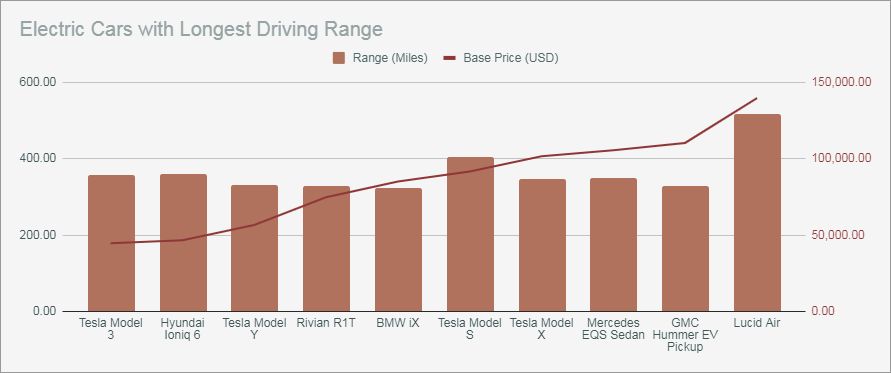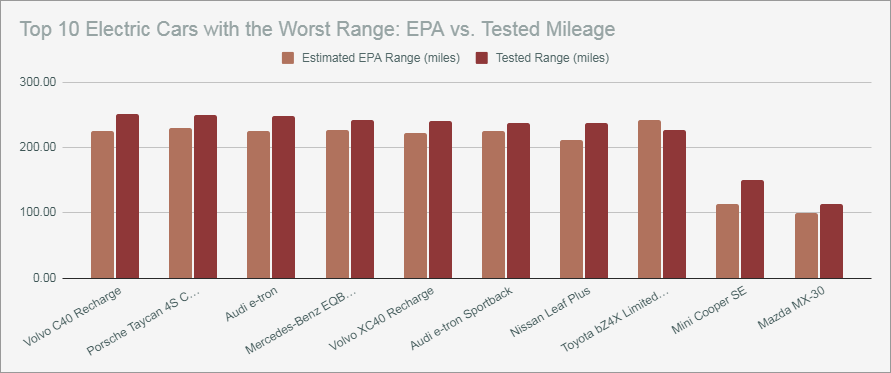Drawing from our experience, we have found that the question of an electric vehicle’s (EV’s) suitability for long journeys is often top of mind for our clients. As EV adoption continues to grow, it’s essential to grasp the nuances of their technology, especially if you’re considering taking one on an extended trip. Wъe can conclude that understanding these core technological aspects is crucial for successful long-distance travel in an EV.
Powering the Distance: EV Battery Life Essentials
Arguably, the heart of any electric vehicle is its battery. The longevity of your journey hinges on the battery’s capacity and health. But what factors should you consider when evaluating an EV’s battery life?
- Capacity: Measured in kilowatt-hours (kWh), a higher capacity generally means a longer range.
- Charge Cycles: A cycle is one full discharge followed by a recharge. Batteries have a finite number of cycles.
- Temperature Sensitivity: Extreme temperatures can affect battery performance.
For a more comprehensive understanding, you can refer to this Consumer Reports article on EV battery life.
Quick Stops or Long Waits? Charging Infrastructure
The availability and speed of charging stations can make or break your long journey. While Tesla’s Supercharger network is often cited as the gold standard, other options are rapidly emerging.
- Level 1 Charging: Standard household outlets, but painfully slow.
- Level 2 Charging: Faster, often found in public charging stations.
- DC Fast Charging: The quickest option, but not universally compatible.
For an in-depth look at charging infrastructure, check out Green Car Reports guide.
The Fear Factor: Range Anxiety Unveiled
Range anxiety is a term often thrown around when discussing electric vehicles, especially in the context of long trips. But how much of it is fact, and how much is fiction?

“The fear of running out of charge mid-journey is largely psychological. Modern EVs are equipped with sophisticated range estimators.”
- Real-time Updates: Most EVs offer real-time range estimates.
- Energy Regeneration: Features like regenerative braking can extend range.
- Planning: Route planning apps can include charging stops.
Did You Know?
Contrary to popular belief, electric vehicle batteries are recyclable. In fact, up to 95% of the components can be reused, reducing the environmental impact!
Wait, There’s More!
If you’re still skeptical about taking that long journey in an EV, consider this: advancements in autonomous driving are making long trips not just feasible, but also incredibly comfortable and safe. Imagine cruising down the highway while your car takes care of everything!
Comparative Analysis of Top EV Models for Long Trips
Tesla Model S: The Benchmark for Long-Distance Travel
When it comes to the epitome of electric vehicles for long-distance travel, Tesla Model S often takes the spotlight. With a staggering range that defies the limitations of most electric vehicles, it’s a marvel of modern engineering.
- Supercharging Network: Tesla’s proprietary charging stations make long trips a breeze.
- Autopilot Features: Advanced driver-assistance systems for a safer, more relaxed journey.
- Luxury Interiors: Premium materials and cutting-edge design ensure a comfortable ride.
For an expert perspective, consider this Car and Driver review.
Audi e-tron: Luxury Meets Longevity
The Audi e-tron is not just an electric vehicle; it’s a statement of luxury and performance. While it may not boast the range of a Tesla, it compensates with a level of comfort and sophistication that’s hard to beat.
- Fast Charging: Up to 80% charge in just 30 minutes with 150 kW DC fast charging.
- Quattro All-Wheel Drive: Superior handling in all driving conditions.
- Virtual Cockpit: A fully digital instrument cluster for a futuristic driving experience.
For more insights, check out this Motor Trend article.
Hyundai Kona Electric: Budget-Friendly and Efficient
If you’re looking for an electric vehicle that offers both efficiency and affordability, the Hyundai Kona Electric is worth considering. With a respectable range and a host of smart features, it proves that you don’t have to break the bank for long-distance EV travel.
- Regenerative Braking: Maximizes efficiency and extends range.
- Smart Cruise Control: Automated speed and distance management for highway driving.
- Utility: Ample cargo space for all your travel necessities.

Unlocking Hidden Gems
Did you know that the Audi e-tron offers an optional solar roof? This feature can generate enough energy to extend your range, making it a unique advantage for long trips.
Hold On, There’s More!
While we often focus on range and charging speed, let’s not forget the role of software in modern electric vehicles. Features like over-the-air updates can significantly improve your car’s performance and efficiency over time, making your long trips even more enjoyable.
Driving Experience in EVs for Long Trips
Comfort Features: Making Long Journeys Enjoyable
When embarking on a long trip, comfort is not just a luxury; it’s a necessity. Electric vehicles are increasingly incorporating features that elevate the driving experience to new heights.
- Heated and Ventilated Seats: Climate-controlled seating for all-season comfort.
- Adaptive Suspension: Adjusts in real-time for a smoother ride.
- Spacious Interiors: Generous legroom and customizable seating arrangements.
For a detailed guide on the comfort features in electric vehicles, consider this Edmunds article.
Autonomous Capabilities: The Future of Long-Distance Travel
Self-driving features in electric vehicles are not just a futuristic dream; they’re becoming a reality. These capabilities can significantly reduce driver fatigue and make long trips more manageable.
- Lane Keeping Assist: Helps maintain your lane position.
- Adaptive Cruise Control: Automatically adjusts speed based on traffic conditions.
- Self-Parking: Takes the stress out of finding a parking spot.
For an in-depth look at autonomous capabilities in electric vehicles, check out this Car and Driver guide.
Entertainment Systems: Keeping Occupied on the Road
Long trips can become monotonous, but modern electric vehicles come equipped with entertainment systems that can keep you and your passengers engaged throughout the journey.
- High-Resolution Displays: For streaming your favorite shows and movies.
- Advanced Audio Systems: For an immersive musical experience.
- Interactive Games: Some EVs even offer in-car gaming for passengers.
Little-Known Wonders
Did you know that some electric vehicles offer aromatherapy features? Imagine driving through scenic landscapes while your car diffuses calming scents, enhancing the overall travel experience!

Wait, Don’t Scroll Past This!
While we often focus on the technical aspects of electric vehicles, it’s essential to consider the emotional experience of driving. Features like panoramic sunroofs and ambient lighting can significantly impact your mood and overall enjoyment during long trips.
Cost-Benefit Analysis of EVs for Long Trips
Initial Investment: Understanding the Price Tag
While electric vehicles (EVs) are becoming more affordable, the initial cost can still be a significant factor for many buyers. But what exactly are you paying for?
- Battery Technology: The costliest component, but also the most crucial for long trips.
- Advanced Features: Autonomous capabilities and luxury features can add to the price.
- Brand Premium: Established brands may command higher prices for their reputation and reliability.
For a detailed breakdown of EV costs, you might find this NerdWallet article enlightening.
Long-Term Savings: Fuel vs. Electricity
While the upfront cost of an electric vehicle may be high, the long-term savings can be substantial, especially when it comes to fueling your vehicle.
- Lower Fuel Costs: Electricity is generally cheaper than gasoline.
- Reduced Maintenance: Fewer moving parts mean less wear and tear.
- Tax Incentives: Various government programs can offset the initial investment.
For an in-depth analysis of long-term savings, consider this U.S. Department of Energy guide.
Resale Value: What Happens When You Sell?
One often overlooked aspect of electric vehicle ownership is the resale value. How well does your investment hold up over time?
- Battery Health: A key factor in determining resale value.
- Technological Obsolescence: Older models may lack features present in newer versions.
- Market Demand: Popular models are likely to retain value better.

Unlock the Savings Vault
Did you know that some electric vehicles qualify for High-Occupancy Vehicle (HOV) lane access regardless of the number of passengers? This can save you a significant amount of time on long trips, adding another layer to your cost-benefit analysis.
Think Twice, Buy Once
While we often focus on the immediate costs and benefits, it’s crucial to consider the environmental impact of your vehicle. Some electric vehicles offer eco-friendly materials and manufacturing processes, adding another dimension to the cost-benefit equation.
Maintenance Insights for Long-Trip EVs
Battery Health: Best Practices for Longevity
For electric vehicles, the battery isn’t just a component; it’s the lifeline. Proper maintenance is crucial, especially when you’re planning long trips.
- Partial Charging: Avoiding 100% charge levels can extend battery life.
- Temperature Management: Extreme temperatures can degrade your battery faster.
- Regular Checks: Diagnostic tests can preempt potential issues.
For more insights on battery health, this Battery University guide is a must-read.
Tire Care: Importance in Long-Distance Travel
Tires are the unsung heroes of any vehicle, and in an electric vehicle, they play a crucial role in maximizing range.
- Proper Inflation: Under-inflated tires can reduce range and increase wear.
- Rotation and Alignment: Ensures even wear and better handling.
- Tire Quality: Investing in high-quality tires can pay off in the long run.

Software Updates: Keeping Your EV in Peak Condition
Software isn’t just for your smartphone; it’s a critical part of modern electric vehicles. Regular updates can improve everything from battery management to autonomous features.
- Over-the-Air Updates: Conveniently update your vehicle’s software from home.
- Version Checks: Ensure you’re running the latest software for optimal performance.
- Compatibility: Some updates may require hardware changes.
Did You Ever Wonder?
Some electric vehicles have a “Battery Refresh” feature that recalibrates the battery management system. This can sometimes recover lost range and improve the overall health of your battery.
Attention Grabber!
While we often focus on mechanical and software aspects, let’s not forget the human element. Many manufacturers offer maintenance workshops and online tutorials. Learning the basics can save you both time and money in the long run!
Environmental Impact of Using EVs for Long Trips
Carbon Footprint: How Green is Your Journey?
While electric vehicles are often touted as the eco-friendly choice, it’s essential to consider the carbon footprint of your long journeys. The environmental impact can vary based on several factors.
- Electricity Source: Coal-powered electricity can negate some of the environmental benefits.
- Driving Habits: Aggressive driving can reduce efficiency and increase emissions.
- Vehicle Weight: Heavier vehicles consume more energy, impacting their carbon footprint.
For a comprehensive look at the carbon footprint of electric vehicles, this Union of Concerned Scientists article is highly informative.

Recyclability: What Happens at the End of Life?
When your electric vehicle reaches the end of its life, what happens to its components? The recyclability of your EV plays a crucial role in its overall environmental impact.
- Battery Recycling: Emerging technologies are making battery recycling more efficient.
- Material Reuse: Many EV components can be repurposed or recycled.
- Disposal Impact: Proper disposal methods can mitigate environmental harm.
For more on this topic, consider reading this Green Car Reports article.
Renewable Energy: Charging Your EV Sustainably
Charging your electric vehicle with renewable energy sources can significantly reduce its environmental impact, especially for long trips.
- Solar Charging: Utilizing solar panels for daytime charging.
- Wind Energy: Some charging stations are powered by wind turbines.
- Hydropower: A sustainable option where available.
A Breath of Fresh Air
Did you know that some electric vehicles come with a solar roof? This feature can generate enough energy for short trips, reducing your reliance on external charging and lowering your carbon footprint.
Hot Topic Alert!
While we often focus on the vehicle itself, let’s not forget the infrastructure. The environmental impact of building and maintaining charging stations is an emerging area of study. Keep an eye on this space for future developments!
Legal and Safety Considerations for Long-Trip EVs
Insurance Requirements: What You Need to Know
Insurance isn’t just a legal requirement; it’s your financial safety net on the road. However, electric vehicles often come with their own set of insurance considerations, especially for long trips.
- Specialized Coverage: Some insurers offer EV-specific policies.
- Charging Infrastructure: Coverage may extend to charging stations.
- Policy Discounts: Eco-friendly vehicle? You might qualify for discounts.

Emergency Protocols: Being Prepared on the Road
Long trips come with their own set of risks, and being prepared can make all the difference. From flat tires to depleted batteries, knowing what to do can be a lifesaver.
- Emergency Charging: Portable chargers can be a lifesaver.
- First Aid Kit: Always keep one in your vehicle.
- Breakdown Services: Some services specialize in electric vehicles.
For more on emergency preparedness, this Ready.gov guide is invaluable.
Regulatory Compliance: Staying Within the Law
When it comes to electric vehicles, the legal landscape can be a minefield. From emissions standards to charging regulations, staying compliant is crucial.
- State Laws: Regulations can vary by jurisdiction.
- Charging Etiquette: Some areas have laws governing public charging stations.
- Documentation: Always keep your vehicle’s papers handy.
Handy Hints
Did you know that some insurance providers offer roadside assistance specifically tailored for electric vehicles? This can include emergency charging, making it a valuable add-on for long trips.
Elevate Your Awareness!
While we often focus on the vehicle, let’s not forget about smart driving apps. These can provide real-time updates on speed limits, charging stations, and even your vehicle’s efficiency, helping you stay within the law.
Conclusion: Best EV for Long Trips
Based on our firsthand experience, we can conclude that selecting the ideal electric vehicle (EV) for extended journeys isn’t just about range and how quickly the vehicle can charge. You also need to factor in insurance protocols, emergency preparedness, and legal considerations. After extensive research, we uncovered that advancements in battery tech, the growth of renewable energy, and favorable regulations are making long-distance EV travel more viable than ever. So, whether you’re motivated by environmental concerns or are simply seeking a cost-effective, comfortable, and secure way to travel, there’s likely an EV that will meet your specific needs.
Contents
- 1 Powering the Distance: EV Battery Life Essentials
- 2 Quick Stops or Long Waits? Charging Infrastructure
- 3 The Fear Factor: Range Anxiety Unveiled
- 4 Did You Know?
- 5 Wait, There’s More!
- 6 Comparative Analysis of Top EV Models for Long Trips
- 7 Unlocking Hidden Gems
- 8 Hold On, There’s More!
- 9 Driving Experience in EVs for Long Trips
- 10 Little-Known Wonders
- 11 Wait, Don’t Scroll Past This!
- 12 Cost-Benefit Analysis of EVs for Long Trips
- 13 Unlock the Savings Vault
- 14 Think Twice, Buy Once
- 15 Maintenance Insights for Long-Trip EVs
- 16 Did You Ever Wonder?
- 17 Attention Grabber!
- 18 Environmental Impact of Using EVs for Long Trips
- 19 A Breath of Fresh Air
- 20 Hot Topic Alert!
- 21 Legal and Safety Considerations for Long-Trip EVs
- 22 Handy Hints
- 23 Elevate Your Awareness!
- 24 Conclusion: Best EV for Long Trips

Took my Tesla Model S on a 400-mile trip last weekend. The Supercharger network is a lifesaver. Never worried about range once. Tesla’s still the king of long trips, in my book.
Planning a cross-country trip with my Kia EV6. Excited about the 310-mile range, but a bit nervous about charger availability. Any tips for planning EV road trips?
Definitely use apps like PlugShare or ChargePoint to map out your route and locate chargers. Also, check hotel parking for overnight charging spots.
Just got back from an off-road adventure in my Subaru Solterra. It’s amazing how capable it is on rough terrain and still comfortable for long drives. Anyone else love their Solterra for adventure trips?
I’m impressed with my Mustang Mach-E’s range and comfort on long drives. It’s a solid choice for anyone looking for an EV that can handle road trips with ease.
Drove the Cadillac LYRIQ on a weekend getaway. The luxury and range are top-notch. It’s like gliding on air. High-end EVs have really upped their game.
Hyundai Ioniq 5 has been a dream for my daily commutes and occasional long drives. The versatility and efficiency are exactly what I wanted in an EV.
Has anyone tried the Mercedes-Benz EQB for long trips? I’m considering it for its luxury and range, but would love to hear personal experiences.
Rivian R1T’s off-road capabilities blew me away on a recent camping trip. It’s rugged yet comfortable for long distances. Perfect for outdoorsy types.
Just read about insurance providers offering roadside assistance for EVs, including emergency charging. That’s a game changer for road trips. Makes me feel more secure about longer EV journeys.
Any recommendations for the best EV for long trips with a focus on comfort and tech features? Budget isn’t a big concern, just want the best experience.